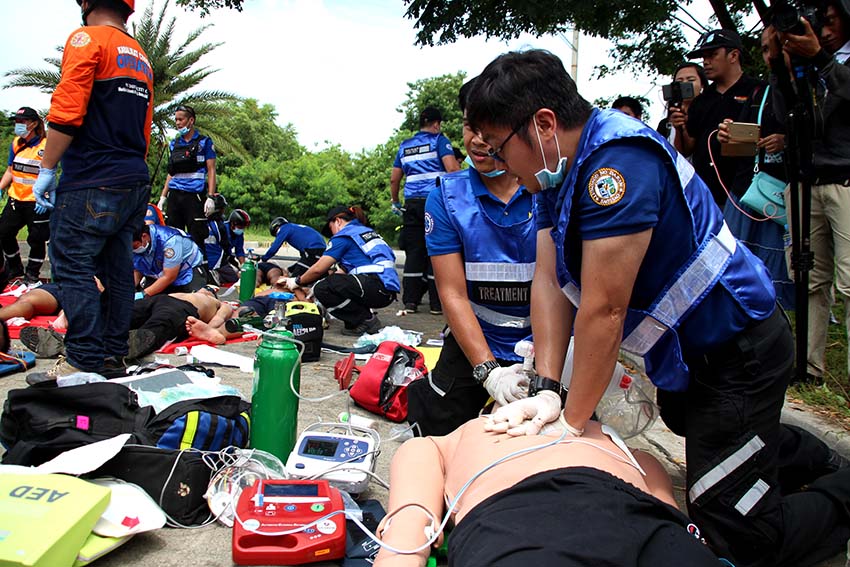
DAVAO CITY, Philippines – Many barangays in the Davao region still need to establish and strengthen their community-based emergency response to better respond during disasters, says the Office of Civil Defense (OCD)-XI.
“Daghan sa mga barangays especially sa mga pobre nga munisipyo volunteer lang gyud ang ilang kaya, masabtan nato no kay pobre gyud pero nagapaningkamot man gihapon ang mga munisipyo,” said OCD-XI Director Liza Mazo in a press conference Monday, March 13.
(A number of villages, especially from the poor municipalities, only rely on volunteers. We understand that because they don’t have the capacity, but they are doing their best.)
Mazo said they are still encouraging all barangays to form their group of community responders to assist and respond during emergencies like the March 7 earthquakes which affected 194,057 households or 229,647 families in the province of Davao de Oro and recorded a total of Php 265 million damages in infrastructures.
The lack of budget is one of the main reasons why many communities cannot form their own Barangay Emergency Response Team (BERT). Mazo said the local government units are assigned to allocate a budget for training and purchasing equipment. She said the ideal barangay response composition needs equipment, an emergency medical team, and a search and rescue team for both water and collapsed structures.
“Pero dili man tanan barangay maka-afford ana. Bisan unta katong basic lang nga unsaon pagpa-evacuate, mga drill, pwedi gamiton ang mga barangay tanod tudluan sa mga open site para sa evacuation for earth quake, pag bagyo asa dapit ang evacuation center,” she added.
(But not all villages can afford these. We hope, though, that the most basic can be realized like how to evacuate, conducting drills where they can teach village watchmen to look for open sites for evacuation during earthquakes or where to evacuate during typhoons.)
Meanwhile, OCD-XI also sees the need to strengthen community-based campaigns about safety awareness during emergencies to avoid panic and public scares. Mazo said this is due to the lack of awareness or the public simply forgetting what to do during an earthquake situation because of the lack of familiarity.
She said there is a need for additional community and office earthquake drills to teach the public the safety mechanisms before and during the evacuation.
“Sana sa house no regular sana ang mga parents will join and, in the offices, we do that in the offices. Meron tayong quarterly pero baka makalimutan agad eh, sana do it regularly,” she added.
(Hope we can regularly conduct that in our homes where parents can join. We also do that in the offices like every quarter. But maybe they will immediately forget about it, so hopefully they can do it regularly.)
Mazo also reminded the public to follow safety protocols and not to panic to avoid further emergency problems. (davaotoday.com)
davao region, Disasters









